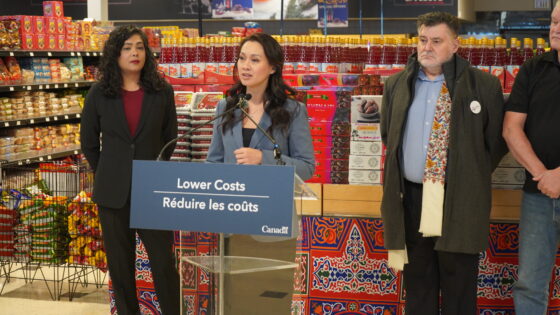on
BY MICHAEL THOMAS
If you want to experience Caribbean and African culture, on-the-spot cooking, and musical artists with a touch of almost everything else, then Jerkfest is the place you must go.
Kicking off the entertainment was new-generation dancehall sensation Masicka. Dancehall artist Din Dong joined Reggae queen Marcia Griffiths, and Soca star Farmer Nappy on Saturday, August 10th, and Sunday, August 11th, along with this year’s Show Your Flow contest winners.
This event could not have been named differently because of all the island jerk foods they had on sale in the park hot off the grill, and even if you were an ‘Italist” like me, there was something for you, like hot and fresh corn soup and fried breadfruit plus roasted corn.
This event occurs religiously yearly at 256 Centennial Park Road in Etobicoke and never disappoints. Come with me as I walk you through what I call the TD Jerkfest journey.
I got there early to make sure I had no parking worries, and I succeeded in securing my spot. After clearing the necessary gate formalities with the powers that be, it was time to soak in the sights and sounds.
Guests were treated to more than one of the DJs who were well versed in keeping the crowd rocking while the mistress of ceremony who was none other than Miss Tanya Mullings got ready to call the numerous talented artists on stage.
I preferred to attend on Saturday because I know that Saturday usually has the largest attendance, and I believe I was right once more. From the moment she introduced the first act, you knew you were in for a musical treat. All the performers were excellent.
This year’s musical lineup featured many female musical talents from near and far, there were a few new artists on tap as well as veteran performers like Miss Donna Makeda who tore the house down and was accompanied by her female dancers, and yes, the queen of Reggae was in attendance.
Miss Marcia Griffiths, the undisputed queen of Reggae graced this year’s Jerkfest with an award-winning performance. She performed hit after hit and had the crowd in stitches from beginning to end. She closed off with the crowd joining her to dance her massive hit “Electric Slide,” after which TD Jerkfest promoters presented her with an award for her over 60 years in the music business.
I caught up with this giant of Reggae and music in general backstage after that monster performance and had a brief conversation with her. Amid all the loud music, here is a piece of this short exchange.
I asked Miss Griffiths, “If you had the whole of Canada in front of you at this moment what would you say to them?” Griffiths replied, “I have always seen Canada as my second home, I do not know why. When I am in Canada, I always look forward to communicating with the people, and so, I feel at home. This is one of my most satisfying moments, just being here.”
Now for a bit more about Jerkfest.
“JerkFest has always been about more than just food and music, we love to give back to the community,” shared Anthony Plummer, Founder and Executive Director of Caribbean Promotions Arts and Culture Inc. “This year, we’re expanding our customer appreciation efforts with the introduction of the JerkFest Cares Grocery Grab.”
From 10:00 am to 2:00 pm on Saturday and Sunday, adults who donated three non-perishable food items to the Afri-Can Food Basket and Regeneration Marketplace could enter the park for $4.99, and children aged seven -12 could enter for $2.00.
That’s not all, donors were entered into a draw to win a $25 gift card to a grocery store and the JerkFest Grocery Grab grand prize presented by JerkFest Cares. Twenty-two winners received gift cards, while the grand prize winner experienced the excitement of a timed shopping spree in a grocery store to grab as many items as they can in one minute and 23 seconds with a spending limit of $1,300.
The TD International Jerk Food and Music Festival was supported by: The Government of Canada, Jamaica National Money Transfer, TicketPro, DoorDash, The City of Toronto, Ontario Trillium Foundation, FLOW 98.7, Greater Toronto Airport Authority, Raymond Foster Realtor, Government of Ontario, Residence Inn Marriott, Walkerswood Caribbean Foods, Courtyard Marriott, and OLG, which is a co-sponsor in partnership with the Government of Canada of local artists over 18 years old.
Stay in the loop with exclusive news, stories, and insights—delivered straight to your inbox. No fluff, just real content that matters. Sign up today!
In his new role as a reporter and Journalist, Michael can he be described in two words: brilliant, and relentless. Michael Thomas aka Redman was born in Grenada, and at an early age realized his love for music. He began his musical journey as a reggae performer with the street DJs and selectors. After he moved to Toronto in 1989, he started singing with the calypso tents, and in 2008, and 2009 he won the People’s Choice Award and the coveted title of Calypso Monarch. He has taken this same passion, and has begun to focus his attention on doing working within the community.













